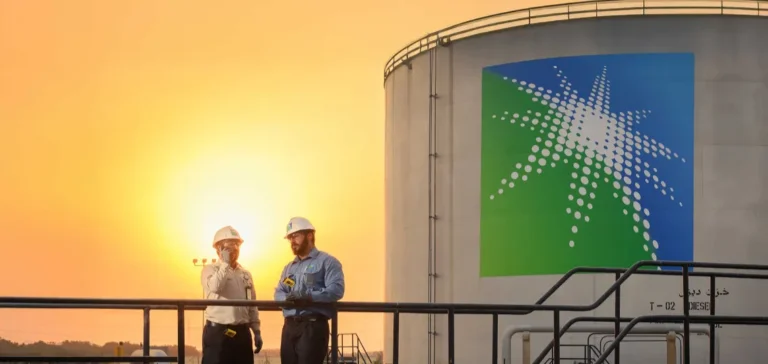Saudi Aramco published its second quarter and first half 2025 results, demonstrating robust financial performance in a volatile market environment. The company recorded an adjusted net income of $24.5 billion in the second quarter, compared to $26.3 billion in the previous quarter, primarily due to lower crude oil prices.
Operating cash flows amounted to $27.5 billion in the second quarter, generating free cash flow of $15.2 billion. The company’s gearing ratio stood at 6.5% as of June 30, 2025, compared to 5.3% on March 31, reflecting a strong financial structure. The board of directors declared a base dividend of $21.1 billion and a performance-linked dividend of $0.2 billion, to be paid in the third quarter.
Encouraging outlook for global demand
CEO Amin H. Nasser emphasized that market fundamentals remain strong, anticipating oil demand in the second half to be more than two million barrels per day higher than the first half. This projection is based on the conviction that hydrocarbons will continue to play a vital role in global energy and chemicals markets.
The company maintained 100% supply reliability in the first half, confirming its reputation as a reliable energy supplier. This exceptional performance was achieved despite geopolitical challenges, demonstrating Aramco’s remarkable operational capability to serve its domestic and international customers.
Strategic expansion and technological innovation
Aramco is progressing on several major strategic fronts. The first phase of the Dammam development project was brought onstream in 2025, increasing crude oil production capacity by 75,000 barrels per day. The Berri and Marjan increment projects are on track for completion in 2025, adding 250,000 and 300,000 barrels per day of additional capacity respectively.
In the gas sector, construction of the Jafurah Gas Plant is progressing on schedule, with the first phase expected to be completed in 2025. Field production is expected to reach a sustainable rate of 2.0 billion standard cubic feet per day by 2030, in addition to significant volumes of ethane, natural gas liquids and condensates.
Diversification and sustainable development
The company successfully issued $5.0 billion in international bonds under its GMTN program in June 2025, demonstrating investor confidence. The issuance was split into three tranches with 5, 10 and 30-year maturities, optimizing the company’s capital structure.
Aramco also signed power purchase agreements to develop new renewable energy projects, capitalizing on the Kingdom’s advantaged solar and wind resources. Seven new renewable energy projects, comprising five solar photovoltaic facilities and two large-scale wind power plants, represent a combined capacity of 15 GWac and a total investment of approximately $8.3 billion.
The company significantly increased its artificial intelligence computing capacity to over 500 PetaFLOPS, a 20-fold increase from the previous year. This enhancement enables the integration of AI-powered applications and solutions, consolidating Aramco’s leadership in the energy sector’s digital transformation.
Downstream activities utilized approximately 54% of Aramco’s crude oil production in the first half, demonstrating the effective integration of its operations. The Shaheen project in South Korea, currently around 75% complete, is expected to become one of the world’s largest integrated steam crackers upon its expected completion in the second half of 2026.
Aramco also launched premium fuel lines, including Aramco ProForce 97 and ProForce Diesel in Chile and Pakistan, the result of extensive research and meticulous fuel formulation development. These launches illustrate the company’s commitment to providing high-quality products that meet evolving global consumer needs while maintaining its position as a leader in the global energy industry.






















